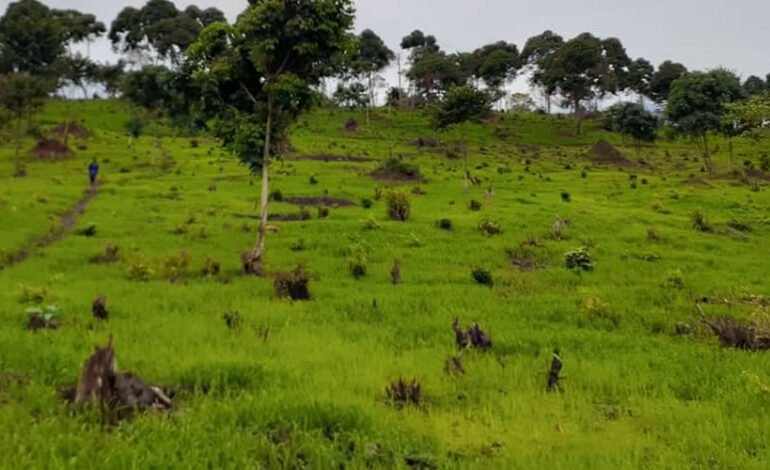
The Lands Ministry has called on women to assert their rights by signing family land purchase agreements as co-owners rather than mere witnesses. This advice is in response to the growing number of eviction cases where women, having signed as witnesses, face displacement without any legal claim to the property.
During a recent dialogue organized by the Uganda Community-Based Association for Women and Children Welfare (UCOBAC) under the Stand For Her Land Campaign, Mr. Abdul-Nasser Olekwa, Principal Lands Officer, and Mr. Dennis Obbo, Principal Communications Officer, emphasized the critical need for women to secure their rights.
Mr. Obbo highlighted a prevalent issue where women, despite contributing significantly to the purchase of family land, sign agreements only as witnesses. This practice enables spouses to sell the land without their consent, particularly during marital disputes. “Why sign as a mere witness when you have worked hard to raise the money? Women need to challenge this norm and assert their rights,” Mr. Obbo urged.
Mr. Olekwa attributed these injustices to deep-rooted cultural beliefs that dictate women should be submissive to men, denying them the right to inherit property from their spouses or parents. “Many of these beliefs are culturally unfounded but continue to undermine women’s land rights,” he stated.
Ms. Caroline Kayanja, UCOBAC’s Senior Programs Officer, underscored that while women are the primary users of land, men predominantly own it. “If women remain mere users without ownership rights, their productivity and security on the land are at risk,” she noted.
Participants in the dialogue called for land laws to be translated into local languages to ensure broader understanding and accessibility. Ms. Kayanja pointed out that many women lack basic knowledge about land ownership laws, making them more susceptible to exploitation. She shared instances where women were evicted after their husbands sold the land without their knowledge, highlighting the urgent need for women to be recognized as co-owners.
Data from the Uganda Bureau of Statistics shows that while a significant percentage of land is purchased with contributions from both spouses, only a fraction of women are listed as co-owners. This discrepancy underscores the necessity for policy changes and increased awareness.
“Women must be aware of their rights and the importance of being recognized as co-owners of family land,” Mr. Olekwa stressed. “This change is crucial for ensuring their security and participation in land ownership.”
Ms. Kayanja added, “Translating land laws into local languages will empower women and other community members to understand and claim their rights effectively.”
One participant, Ms. Jane Namukasa, shared her experience: “I was unaware of the implications of signing as a witness. Now, I understand the importance of being a co-owner to protect my contributions and rights.”
The Stand For Her Land Campaign, led by UCOBAC, focuses on securing women’s land rights through education, advocacy, and legal reforms. The campaign aims to bridge the gap between existing laws and their implementation, ensuring women can fully exercise their rights.
UCOBAC has been actively involved in community outreach programs, educating women about their land rights and the importance of legal documentation. These initiatives empower women to take proactive steps in securing land ownership.
The Lands Ministry has pledged to support legislative reforms that promote gender equality in land ownership. Mr. Obbo stated, “We are committed to working with lawmakers to ensure that land laws are inclusive and protect the rights of all citizens, especially women.”
The ministry’s call for women to sign family land purchase agreements as co-owners marks a significant step towards gender equality in land ownership. By securing their rights as co-owners, women can protect their investments, prevent disputes, and contribute to the economic development of their communities.
The collaborative efforts of the Lands Ministry, UCOBAC, and the Stand For Her Land Campaign aim to create a more inclusive and equitable land ownership landscape in Uganda.

